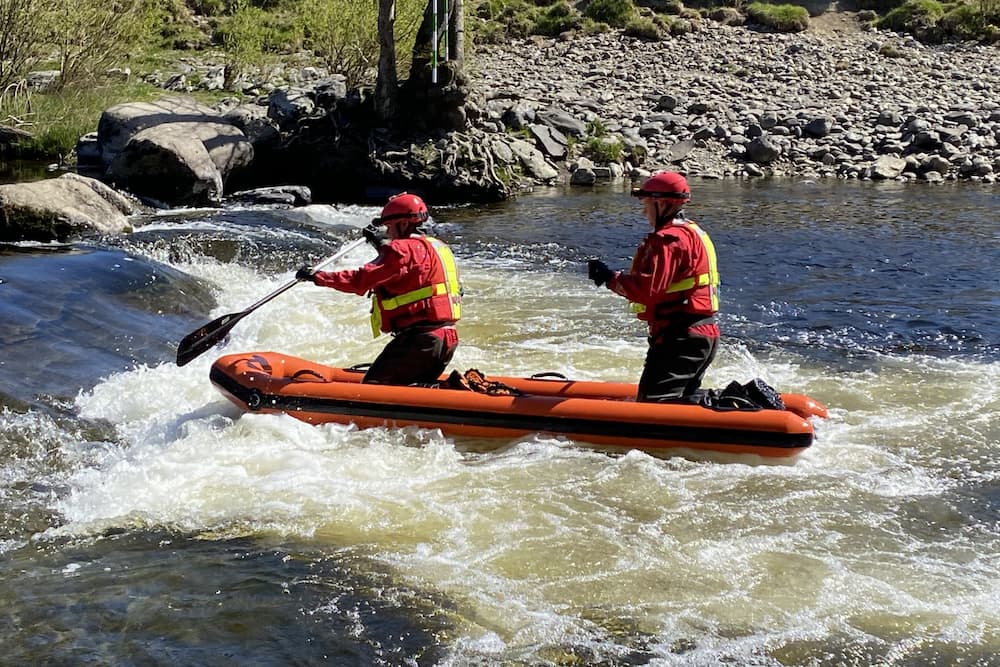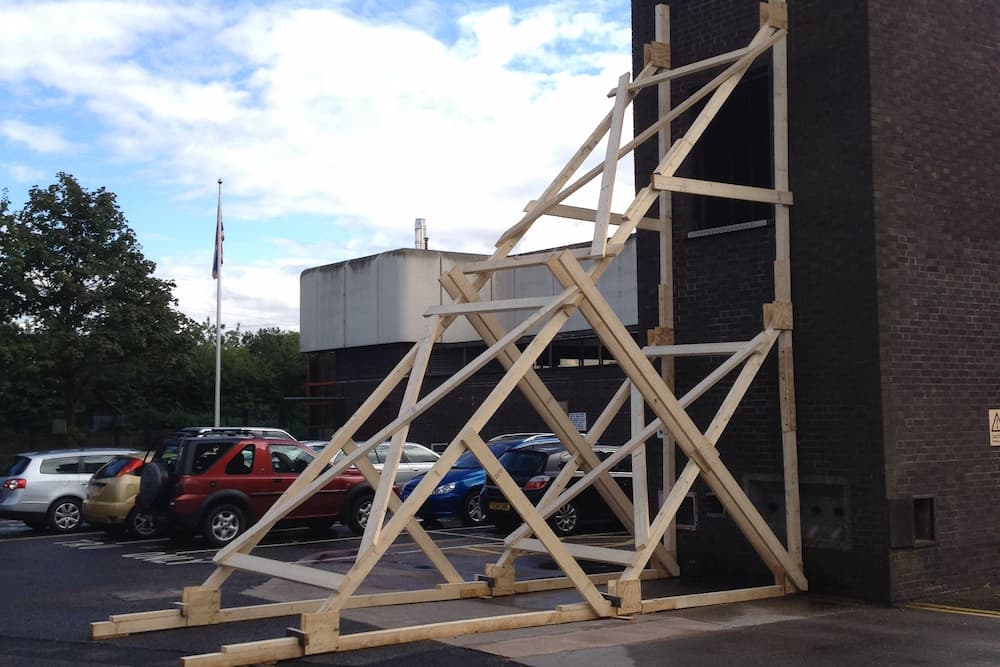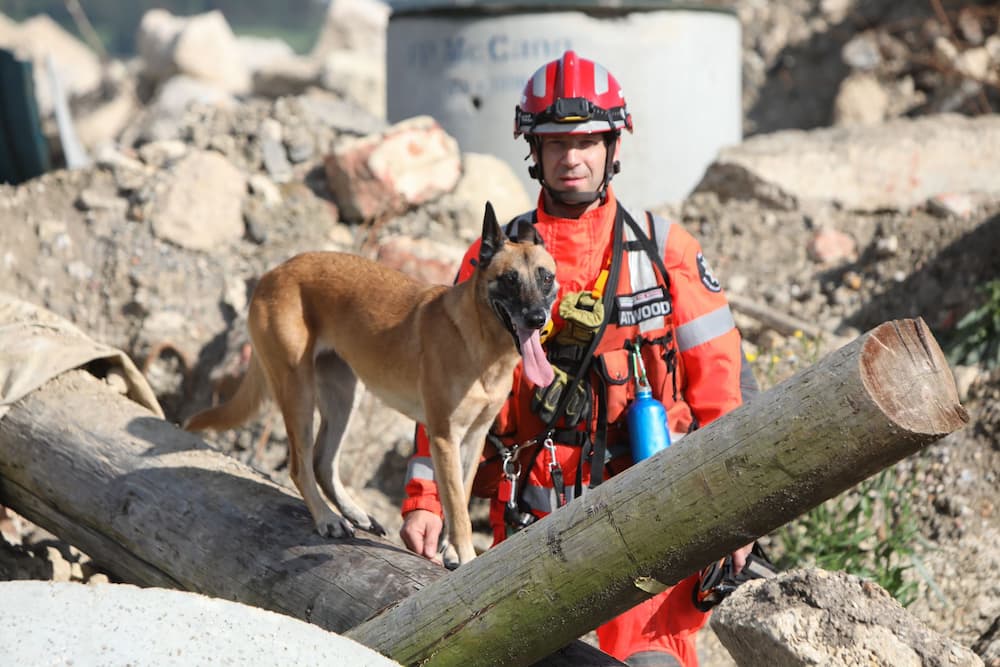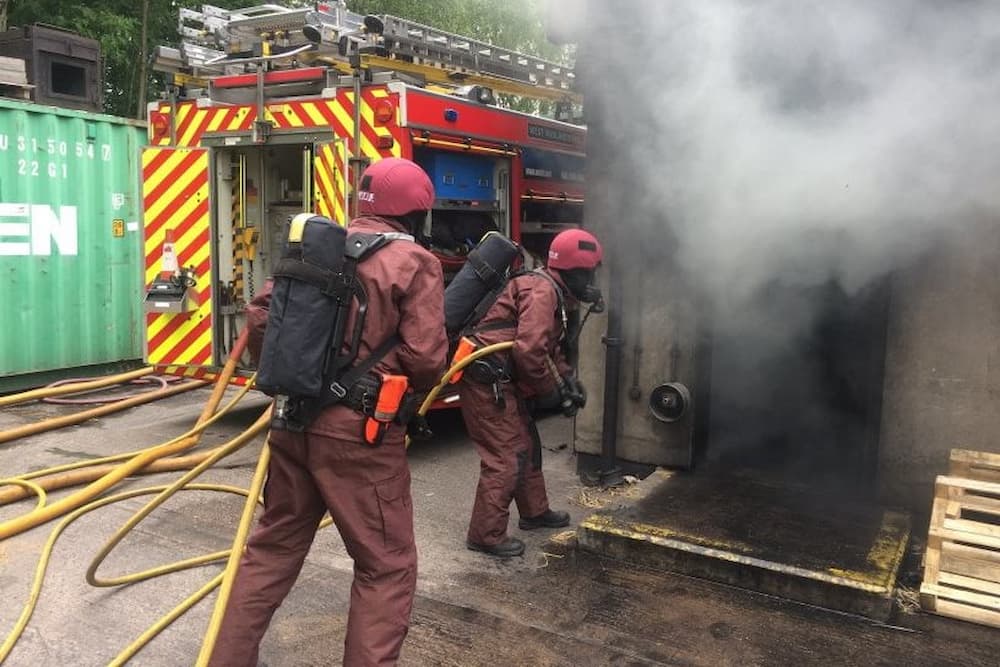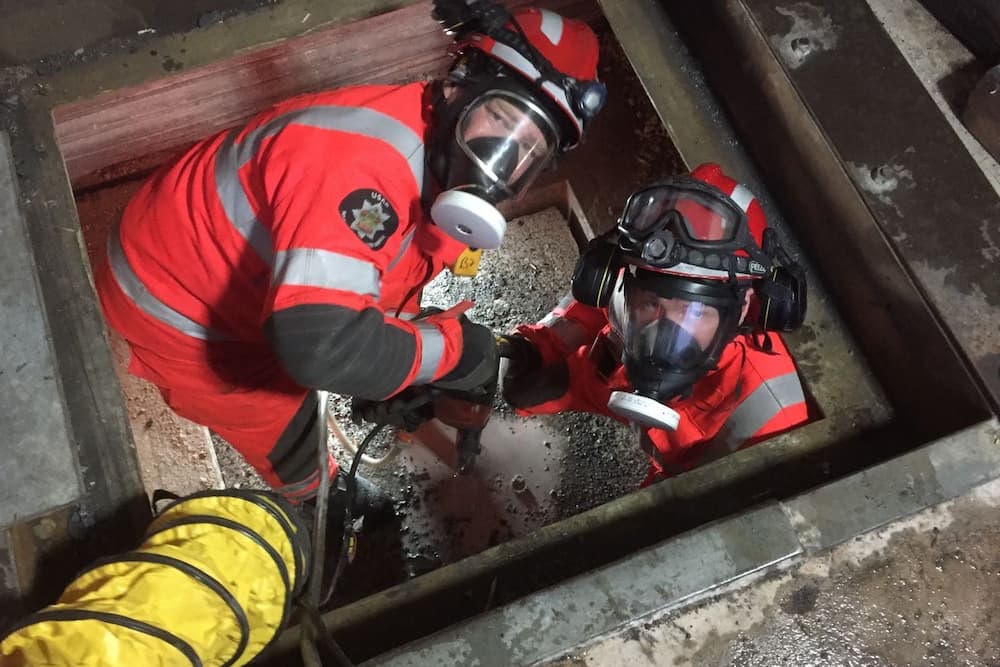Technical Rescue
Technical Rescue deals with incidents that require additional equipment and training outside the remit of standard firefighting, this can include water rescue, rope rescue, response to terrorist threats and more.
Our Technical Rescue Unit (TRU) responds locally, regionally and nationally to incidents involving life and property as well as incidents that require extra training, equipment and knowledge. These additional skills can be defined into two areas:
- Urban Search & Rescue (USAR) – Established following 9/11 attacks which showed that the UK may not be best equipped to deal with similar attacks. It is part of a government-funded programme to provide mutual aid and support nationally in the event of a terrorist attack or other major incidents, such as widespread flooding.
- Technical Rescue – Enhanced technical skills to deal with incidents that fall outside the normal remit of fire crews, such as rope rescue, swift water rescue and more
There are currently two Technical Rescue stations in the West Midlands, one is located at Bickenhill and the other at Wednesbury. A third is currently planned in Sutton Coldfield, expected to be completed in May 2022.
What technical rescue respond to
Water Rescue
The Technical Rescue unit provide a response to all water incidents within the West Midlands region and are part of the Department for Environment, Food and Rural Affairs (DEFRA) capability to respond to national incidents.
With recent deployments to the damaged dam at Whaley Bridge in Derbyshire and the floods at Fishlake in Yorkshire both during 2019, our teams from the West Midlands can respond across the UK to aid other fire and rescue services as well as here at home.
Animal Rescue
Animal rescues present a wide range of hazards not only from the distressed animal but possibly from other animals in the locality, people and the work environment itself.
While our firefighter crews deal with a wide range of animal rescues, those involving large animals or where more specialist rescue techniques, such as incidents involving horses, TRU is able to bring a safe system of work not only for the animal but for all personnel in attendance.
Rope Rescue
Utilising a range of rope rescue equipment the team are able to access, release and evacuate victims. They are able to use the equipment to work at height safely and hands-free.
This can include rescues from height or in difficult to access places, such as banks, steep drops and confined spaces.
All the team are trained to level 1 rope rescue which delivers the skills and knowledge to set up rope systems and the supervisors to level 2 who then assess the system before starting work.
Bariatric Rescue
With the additional skills in patient care that personnel within TRU have gained from their Urban Search and Rescue (USAR) training, they are able to provide a casualty focused response, with bespoke equipment, to support patient care and transfer, assisting our colleagues in West Midlands Ambulance Service to resolve complex rescues and extrications.
Urban Search and Rescue
It was immediately recognised that multiple, large scale attacks on the UK would be difficult to cope with effectively by individual fire and rescue services and New Dimension was intended to provide a range of equipment, people and procedures to allow a coordinated national response to catastrophic events of various types.
By providing these new skills, UK fire services are becoming better prepared to deal with extreme situations and national support arrangements mean we will be better able to cope with the worst types of incidents.
The Urban Search and Rescue (USAR) function of technical rescue allows the team to provide a variety of specialist skills and functions.
These can include shoring up unstable structures, search and rescue for casualties in collapsed structures or dangerous situations, casualty extrication involving rope rescue from height or from hard to reach areas and specialist attendance and equipment to deal with major transport accidents, such as large vehicles, aeroplanes, trains and similar.
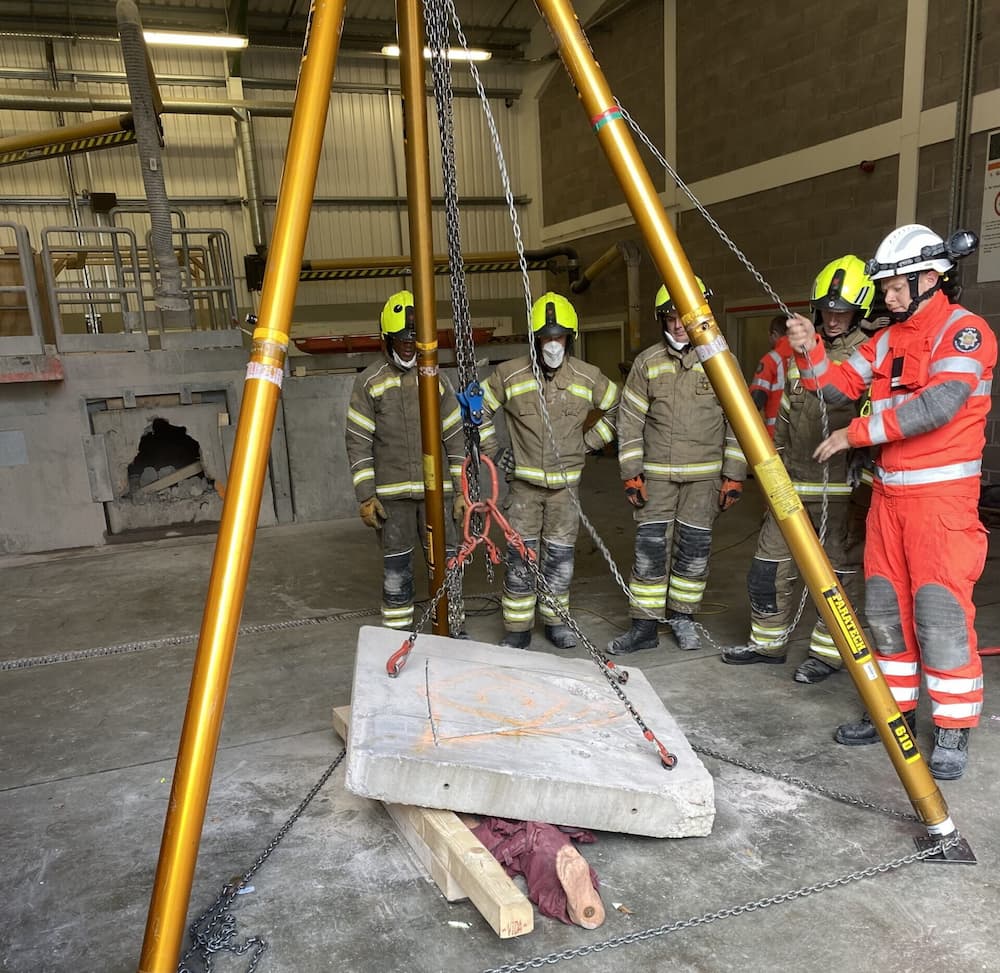
Recruitment for Technical Rescue
Working pattern and commitments
TRU shifts start at 07:00 and finish at 19:00 on days and subsequently are 1900 – 0700 for nights.
Following the day shifts and in between night shifts TRU personnel are on pager cover and have to be able to respond to their nearest TRU station under normal road conditions within 45 minutes. The pager cover attracts a 10% pay enhancement. This total time equates to a 96 hr continuous duty period.
The working arrangements also attract a 10% pensionable enhancement in salary.
National Resilience Deployments and Courses
Because of the commitment of the role and our service nationally, our technical rescue teams can be deployed throughout the UK in a crisis. National Resilience deployments can last up to 30 days. However, in reality, deployments have typically lasted no more than 7 days and rotation of staff is used to allow personnel to return home as needed
You would also need to be flexible to attend courses to further your skills and development, some of which are outside of West Midlands and as such residential.
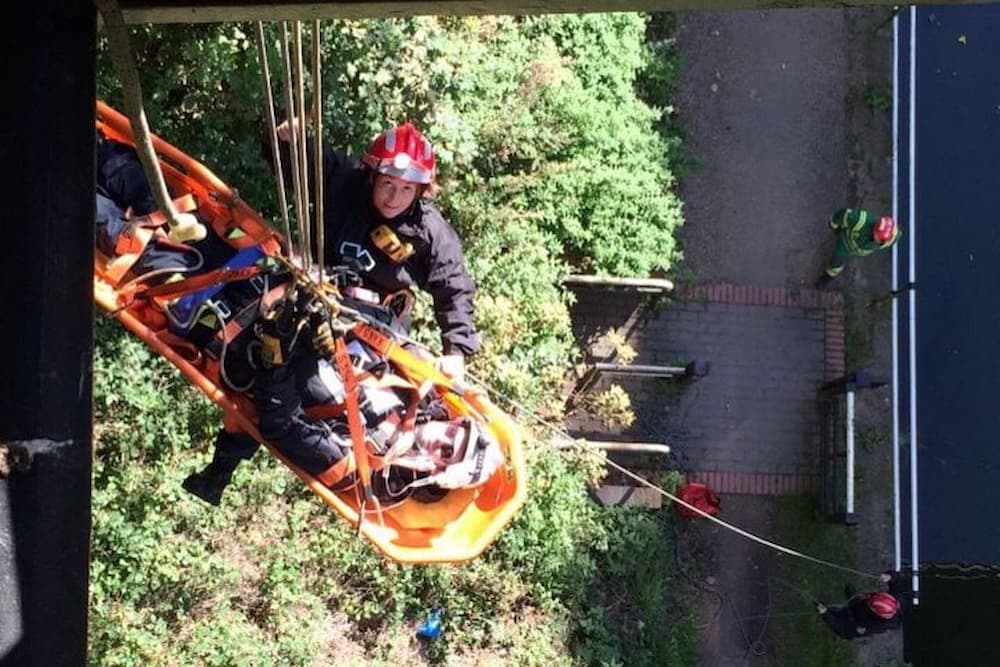
Requirements
The Technical Rescue Unit welcomes applications from serving firefighters with the West Midlands or from those in other services willing to relocate. Below is the required criteria that must be met:
- Must be fully fit for operational duties
- be a permanent wholetime firefighter, employed by a local authority and signed off as competent against NOS for Firefighters (qualified or NVQ level 3).
- must have a full category B driving license (and eligible for Cat C Licence)
- must be able to drive to Bickenhill, Wednesbury or Sutton Coldfield Fire Stations within a maximum of 45 minutes at normal road speeds
Selection Process
Application – To allow candidates to demonstrate the qualities, attributes, and experience that they will bring to the role.
Basic Skills & Attributes – Takes place on one day – Candidates are assessed on their ability to perform in the environments they will be expected to work these are; Swimming Ability Assessment, Confidence Working at Height, Confidence in Confined Spaces and National Fire Ground Fitness Assessment.
Interview – Role-based interview
Practical Selection – Practical selection is held over three days. It consists of practical exercises which develop from the Basic Skills & Attributes phase to simulate a deployment.

